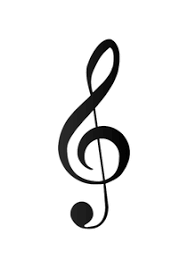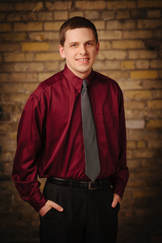|
This blog is dedicated to helping others come to Christ through musical participation. As a part of that, I will be beginning a new series of articles commenting on resources that are available for Latter-Day Saints and other Christians to improve their musical craft and magnify their musical callings in church. A lot of it will be directed towards resources available for those called within the Church of Jesus Christ of Latter Day Saints who have music callings; those of you who have limited musical training, but with a strong desire to help those around you come to Christ through the music you implement in your weekly meetings. For this first post I will be commenting on Dr. Don Cook’s course for beginning LDS organists.
For those of you who aren’t aware, this course is available for free, and through direct MP3 download at this address: http://www.organ.byu.edu/newldsorganist/ It includes a set of twelve podcasts all directed to teaching beginning organists, and especially those who play piano who have little to no experience on the organ. There is a packet of supportive materials available as well. I must say, those supportive materials were very valuable to me as I began exploring the organ. I became aware of this course many years ago, back before my mission when my grandma pointed it out on an LDS news article. I had been playing piano for several years, which sparked my grandma’s thought to let me know about it. I looked up the course, found an old mp3 player, and begin listening to the materials. Honestly, I didn’t have the luxury too often of having the church organ all to myself, so I would frequently just listen to it at home in my bedroom. (I was a bit of a music nerd, probably drove some musicians in my ward through the roof with all the questions I came with). Anyway, it got to the point I would be found practicing in the chapel on a weekly basis… I was sixteen years old and would practice after our weekly activity nights. It wasn’t too long after that the bishopric found out. I was called as ward organist six months after I originally downloaded the course, still sixteen years old. I wasn’t perfect. I carried a slow tempo a lot. I also happened to pull out the 8’ trumpet a few more times than typical which got a few raised eyebrows from the bishopric AND stake president (remember, I was sixteen). But in the end, I contribute a large amount of my musical development to that experience. So here’s my review of the course. Among its strengths is it flexibility of use. You can download the course whenever you want, listen and practice whenever you want, and at your own pace. Because of its format on podcast, I was even able to go back and listen to selected chapters as my understanding of the music organ deepened. Among my favorites, if I recall correctly, was chapter three, “Playing Prelude Music that Invites the Spirit.” Another strength is the credibility of the course’s author. Dr. Don Cook is a professor at BYU, who teaches organ pedagogy. The courses break down the organ components into small steps that I was able to understand very well as a budding and mostly self-taught musician. There were no technical terms I didn’t understand and it was all applicable to my understanding of the piano. I learned very well what the difference was between the piano and the organ, and the strengths of the organ in accompanying a congregation. Now to its weaknesses. It is very important to understand that this course does not replace a private organ teacher. Through this course I was able to learn the basics of the organ, using the pedal, playing hymns with legato lines, registration, and on. What I would have gained through private lessons from an experienced teacher at sixteen years old is using appropriate tempos for different hymns, as well as added depth in understanding organ registration. It was several years later that I was also able to take lessons from Sister Rebecca Parkinson who teaches at BYU-Idaho. There I learned so much more in organ technique and the appropriate amount of legato vs separation when playing individual lines in a hymn. Even at this point, with degrees in piano, and a pending graduate degree in music therapy, I look forward to eventually taking more organ lessons down the road to build my understanding. In the end, I would highly advise you taking this course if you are even remotely interested in playing the organ. There is a dearth of organists even in the professional world of organ outside of the LDS church. If it’s any incentive, organists at other denominations are high paying jobs and are in high demand. The church itself is growing rapidly. Due to its fast-paced growth, professional musicianship is having a hard time keeping up with demand. In your own ward you probably have one good organist. What happens when your ward splits into two? Or that one organist has had enough? In short, WE NEED YOU, and your skills are vital the continued growth of the church and the gathering of Israel that President Nelson so often speaks of. Don’t let the organ itself intimidate you. As I explored the organ at my own pace I fell in love with it more and more. The richness of timbre available through the organ is like no other. There’s a reason it’s called the king of instruments. Finally, I know that others have utilized this course successfully. If you are one of those people, please leave a comment below on your story using the course, how much of a help it was to you and where you are now in your development playing the organ. I’d love to hear from you, and future takers of the course will benefit from your insight.
0 Comments
Leave a Reply. |
AuthorI'm a sacred music enthusiast. I'm one of those people that attends church for the music just as much as the sermon, one of those people that give an evil glare at the people who leave for the congregational hymns, (Ok no, not really). Archives
December 2021
|


 RSS Feed
RSS Feed
